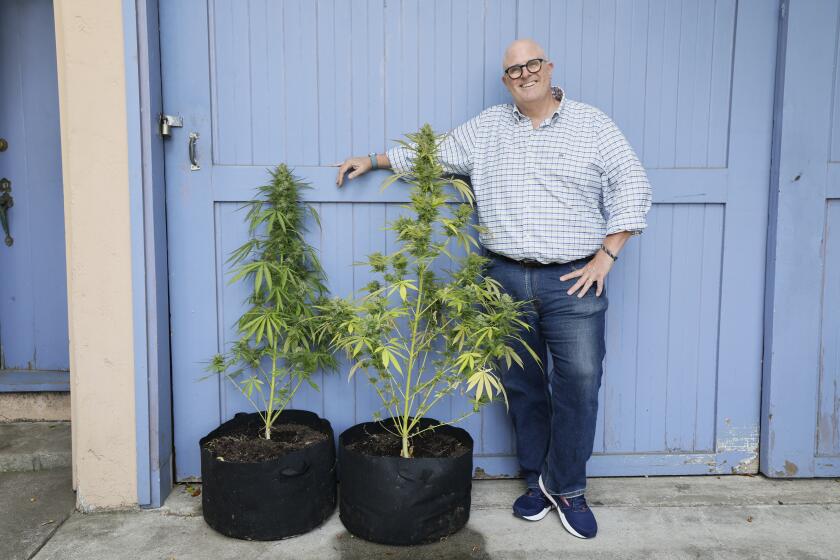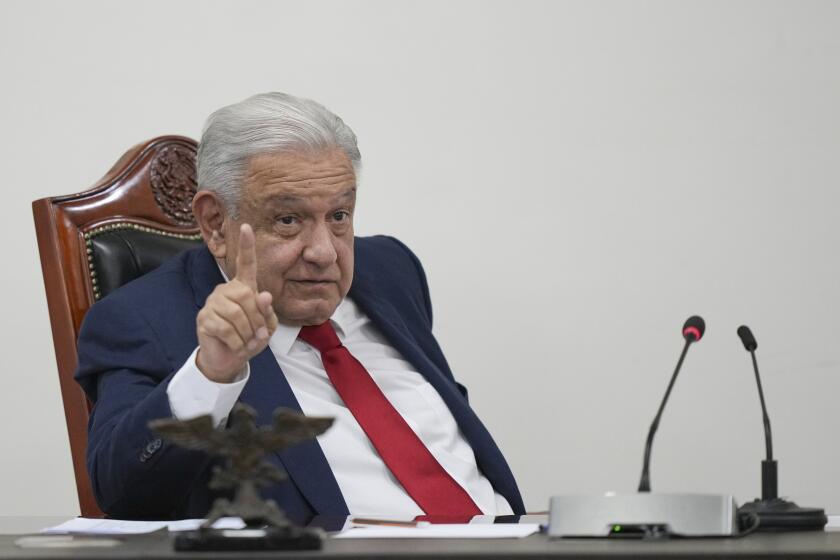PERSPECTIVE ON HIP-HOP : Black Kids Get a Bad Rap on Pot : Musicians should tell the whole story about drugs, because theirs is the only message some young people hear.
On a recent morning, four book-toting black girls in knee-high socks walked down my street on their way to junior high school. Three of the girls smoked and passed a marijuana joint between them. The fourth lagged several steps behind.
I was struck by the smokers’ casualness. When the girl toking on the joint saw me, an adult, approaching, she made no attempt to hide it. She turned to her fellow smokers and said, “I remember the first time I got high . . . .” They shared a knowing laugh. Behind, the lone straggler put her head down.
The 20th annual survey by the University of Michigan’s Institute for Social Research recently reported that marijuana showed the sharpest gains of all drugs used by high school seniors. For the third consecutive year, marijuana use increased among eighth graders. Marijuana is becoming the drug of choice for our nation’s youth. Unfortunately, this is particularly true in the black community.
There are many reasons why urban black youth turn to marijuana. It is a temporary escape from the realities of a young black life. Marijuana is grown, not processed, so it is thought to be a “natural” and therefore “safe” drug. Unlike crack or heroin, marijuana is not considered to be addictive; it is not looked upon as a dangerous drug.
Though these factors all contribute to marijuana’s rising popularity among young blacks, the most critical factor in this phenomenon is the drug’s endorsement by the hip-hop community.
Rap is undeniably the music of young black urban America. Public Enemy’s Chuck D calls rap “the CNN of the black community.” Young blacks look to rappers for their fashion cues, the latest slang and for what is “cool.” Most of the top-selling rap albums have at least one reference to smoking marijuana. Dr. Dre titled his multiplatinum album “The Chronic,” a popular slang for the drug. Cypress Hill raps often about the joys of marijuana. The message: Marijuana is cool. The kids are listening.
This places adult hip-hop fans in an awkward position. We are aware of the thinly veiled attacks by politicians and the media on this music and the rappers who produce it. There is a concerted effort to make a causal link between rap and violence. It may seem that the last thing the genre needs are its fans pointing fingers as well. But fans who look beyond hip-hop’s very serious image problem and understand rap’s critical function as a cathartic outlet for black youth need also to look at the impact of the rappers’ message on that same youth. It’s unsettling to hear preteen kids quoting Snoop Doggy Dogg, “I promise that I’ll smoke Chronic till the day that I die.” Smoking marijuana provides these kids with an easy avenue to claim maturity, much as smoking cigarettes did 20 years ago.
Since rappers boast about being “real,” we have to hold them responsible for telling the whole, real story about marijuana. The real story, says Health and Human Services Secretary Donna Shalala, is that “clear scientific evidence shows marijuana is a dangerous drug that can have acute and hazardous effects including impairment of learning, memory, perception, judgment and complex motor skills.”
The black hip-hop community must find creative and forceful ways to deal with the marijuana problem. Rap journalists need to consistently take rap artists to task when their “real street” lyrics glorify marijuana but make no mention of the side effects like memory loss and impaired learning ability. We have to hold rappers responsible for telling this whole, real story because it may be the only news report that marijuana-smoking, schoolbook-toting black kids will listen to.
More to Read
Sign up for Essential California
The most important California stories and recommendations in your inbox every morning.
You may occasionally receive promotional content from the Los Angeles Times.










